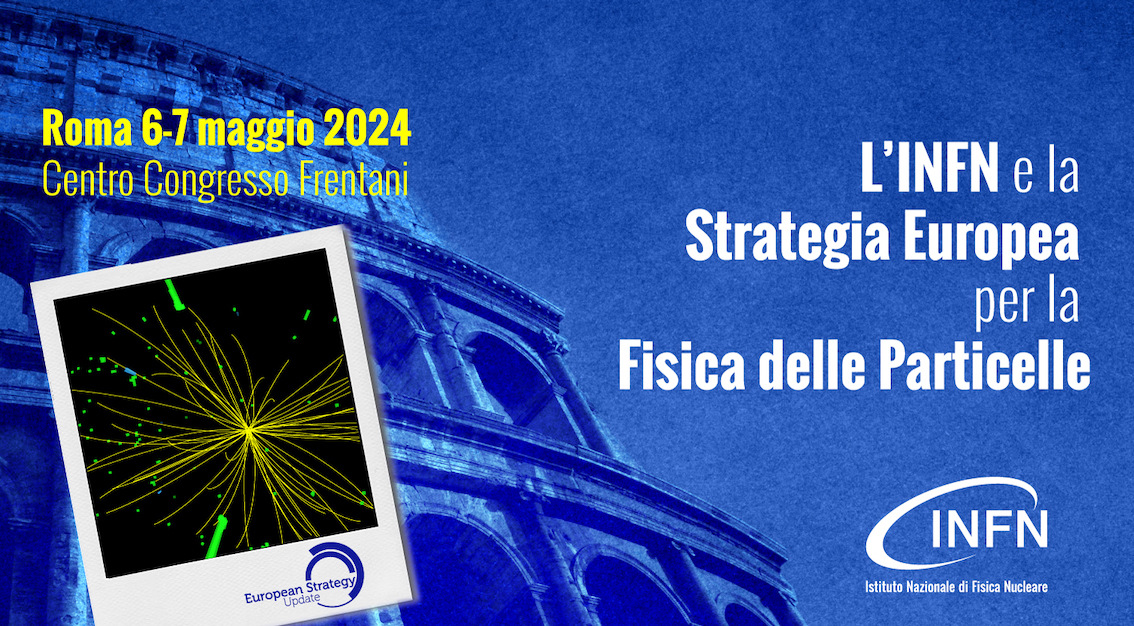
Recent progress and future developments of the feasibility study for the Future Circular Collider (FCC, the particle collider that could replace the High Luminosity LHC towards 2040), and other projects included in the European Strategy for Particle Physics, will be the focus of the national workshop “INFN and the European Strategy for Particle Physics”. This will be held in Rome, at the Centro Congressi Frentani, from May 6 to 7. The workshop will be dedicated to updating and discussing activities that the various groups within the Italian particle physics community coordinated by INFN are developing for implementing the recommendations of the European Strategy. The two work days will launch the process for preparing scientific contributions to the next edition of the Strategy, a crucial step for the future of European and global high-energy physics.
Organised by INFN, the workshop is thus part of the broader international context. Last February, the work completed so far was actually presented to the CERN Council. Such work is the result of the commitment of the wider scientific community, which INFN is also part of, especially to completing the FCC feasibility study. Currently, the feasibility study is halfway through development and should be completed by 2025. In addition, during the March meeting, the Council approved the general calendar for the next Strategy update. The deadline for presenting the community’s contribution was set for 31 March 2025, with the goal of concluding the process in June 2026, with the update of the Strategy by the CERN Council.
The feasibility study for FCC was launched in response to a recommendation contained in the update to the 2020 European Strategy for Particle Physics. According to this document, Europe, in collaboration with the global scientific community, should embark on a technical and financial feasibility study for an integrated project that involves, in a first phase, an electron-positron collider and, in a later phase, a high-energy hadron collider.
The strategic document actually identified building a Higgs factory, i.e. a machine capable of generating millions of Higgs bosons with much “cleaner” final states, like those that characterise a lepton machine, as a priority, followed by the ambitious project of a very high-energy proton machine. Thus, with the support of the Council, CERN launched the feasibility study for the FCC project, which provides for building a tunnel of approximately 91 km in circumference. The tunnel would initially host a very high-luminosity electron-positron collider able to operate at different energies, both at the peak of Higgs (ZH) production and at the value of the Z0 boson mass, up to the threshold for producing a top-antitop quark pair. The lepton collider would thus be replaced by a proton-proton collider, with a centre-of-mass energy up to more than 100 TeV. INFN is involved in several projects included in the European Strategy and, in particular, in FCC through the RD-FCC project, with structured research and development activity aimed at building the IDEA (Innovative Detector for Electron-positron Accelerator) detector, and through researching infrastructure to implement and design the lepton accelerator.






